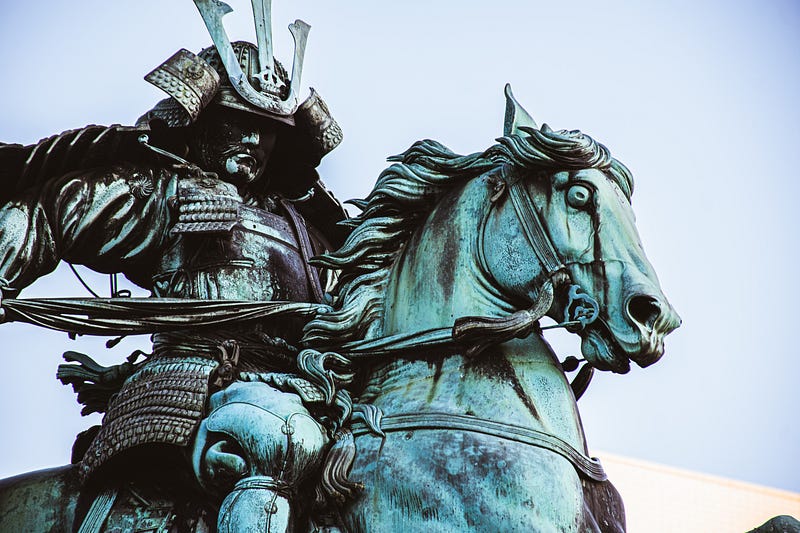How to write a convincing Samurai story (ultimate guide)

Samurai stories have captured the imaginations of people around the world for centuries. Whether you’re a fan of samurai films, manga, or video games, there’s no denying the allure of these warriors and the codes they lived by. But how do you write a samurai story that truly captures the essence of the samurai spirit? In this ultimate guide, we’ll walk you through everything you need to know to write a convincing samurai story.
Know the history
The first step to writing a convincing samurai story is to understand the history of the samurai. The samurai were a warrior class in feudal Japan that existed from the 12th to the 19th centuries. They were known for their loyalty, bravery, and dedication to their lords. They lived by a strict code of ethics known as bushido, which emphasized honor, duty, and respect.
It’s important to understand that the samurai were not just warriors, but also political and social leaders. They had a significant impact on Japanese society and culture, and their stories reflect this. So, when you’re writing your samurai story, it’s crucial to have a solid understanding of the historical context and the cultural significance of the samurai.
Choose a protagonist
In any good story, the protagonist is the key to the audience’s engagement and investment in the story. When writing a samurai story, you need to choose a protagonist that embodies the qualities of the samurai.
Your protagonist should be brave, honorable, and dedicated to their lord. They should also have a sense of duty and responsibility to their community. Consider giving your protagonist a unique personality or backstory that sets them apart from other samurai. This can help to make them more relatable and memorable to your audience.
Develop a compelling conflict
In order to write a convincing samurai story, you need to have a strong conflict that your protagonist must overcome. This conflict should challenge their beliefs and test their resolve. It should also be rooted in the historical context of feudal Japan.
Some common conflicts in samurai stories include:
- A battle between rival clans
- A struggle for power within a clan
- A quest to avenge a wronged comrade
- A fight against an external enemy
- A challenge to the protagonist’s beliefs or code of ethics
Your conflict should be central to the story and drive the action forward. It should also be resolved in a way that is consistent with the samurai code of ethics and the historical context of feudal Japan.
Create memorable characters
In addition to your protagonist, it’s important to create memorable characters that will support and challenge them throughout the story. These characters should also reflect the values and beliefs of the samurai.
Consider creating characters with distinct personalities and motivations. This will help to add depth and complexity to the story. You can also create memorable villains that will test the protagonist’s resolve and provide a foil to their actions.
Write with a strong voice
The voice you use to write your samurai story is crucial to its success. It should be strong and evocative, capturing the essence of the samurai spirit.
Consider using a formal and respectful tone to reflect the traditional values of the samurai. You can also incorporate elements of Japanese culture and language into your writing to create a sense of authenticity.
Pay attention to detail
When writing a samurai story, it’s important to pay attention to the details. This includes the historical context, the cultural references, and the attitudes and beliefs of the samurai.
Consider researching the weapons, armor, and clothing of the samurai to ensure that your description is accurate and believable. You can also incorporate elements of Japanese mythology and folklore to add depth and richness to your story.
Show, don’t tell
One of the biggest mistakes that writers make when writing a samurai story is telling instead of showing. Instead of simply telling your audience what’s happening, try to show them through the actions and reactions of your characters.
For example, instead of saying that your protagonist is brave, show them taking action in a dangerous situation. Instead of saying that they are honorable, show them making a difficult decision that reflects their code of ethics. By showing, rather than telling, you will create a more immersive and engaging story.
Respect the code of bushido
Finally, it’s important to respect the code of bushido when writing a samurai story. This code emphasized honor, duty, and respect, and was the guiding principle for the samurai.
When writing your story, consider how your characters reflect these values. Does your protagonist exhibit honor in their actions and decisions? Do they show respect for their lord and fellow samurai? Do they have a sense of duty to their community?
By respecting the code of bushido, you will create a story that truly captures the essence of the samurai spirit.
In conclusion, writing a convincing samurai story requires a strong understanding of the history and culture of the samurai, well-developed characters, a compelling conflict, a strong voice, attention to detail, and a respect for the code of bushido. By following these guidelines, you will be able to create a story that captures the allure and spirit of the samurai and appeals to audiences around the world.